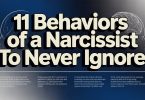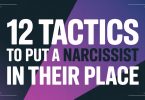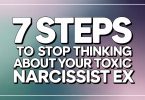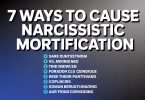Although narcissists love to complicate things, they aren’t very complicated. In truth, they’re quite simple. Narcissistic individuals are driven by manipulation, domination, power, and control period. That’s all it boils down to, and that’s precisely why they cannot tolerate certain personality types. Today, we’ll unpack the seven personality types narcissists secretly loathe and fear.
1. The Empowered Empath
First on the list is the empowered empath. Narcissists find it incredibly challenging to handle individuals who are both empathetic and empowered people who are genuinely compassionate, loving, and caring, as well as fully aware and attuned. Such individuals are not easily manipulated or deceived. Empaths’ loving nature exposes the narcissist’s lack of empathy and emotional depth, as well as their limited emotional intelligence. This stark contrast threatens the narcissist’s facade of superiority.
Empaths often see the good in everyone, sometimes projecting their virtues onto those who lack them, making them susceptible to manipulation. But if you’re an empowered empath, having healed from codependency or past trauma, narcissists won’t like you. Why? Because they can no longer exploit your kindness. Instead, they may attempt to undermine your self-worth and, failing that, resort to smearing your reputation.
Regardless of their tactics, remember that your empathy is a gift. Once you’ve healed from codependency, it becomes your superpower. Never let anyone dim your light; the world needs you shining brightly.
2. The Independent Spirit
Next, we have the strong, independent spirit of someone who knows their worth and stands on their own. This kind of self-reliance threatens the narcissist’s need for admiration and control, making it harder for them to dominate without facing pushback. Narcissists desire power and dominance, so your independence can make them feel inadequate, leading them to belittle your achievements and attempt to instill self-doubt.
Stay true to yourself and maintain your independence. As Marianne Williamson famously said, “There is nothing enlightened about shrinking so that other people won’t feel insecure around you.” This is equally true when dealing with narcissists.
3. The High Achiever
The high achiever a successful, goal-oriented individual with their life together is both attractive and repellent to a narcissist. Narcissists crave social status and recognition without putting in the effort to truly earn it. They latch onto high achievers to boost their status by association, yet simultaneously envy and resent their success.
For narcissists, the accomplishments of others inspire jealousy, and they often feel entitled to benefit from them, even claiming these successes as their own. They may also expect unrestricted access to the high achiever’s resources and connections.
4. The Authentic Truth-Teller
A truth-teller someone who values honesty and transparency is also disliked by narcissists. If you are someone who refuses to enable deception, you’re a threat to the narcissist’s false persona. Your penchant for truth disrupts their web of lies, exposing their manipulation. Narcissists are terrified of exposure, so they’ll attempt to silence or undermine you to maintain their false self-image.
Speaking your truth is powerful, but be cautious. Never put yourself or others in danger by confronting a narcissist directly.
5. The Self-Assured, Confident Individual
Narcissists envy genuine confidence, often surrounding themselves with “yes men” who are too insecure to stand up to them. But if you are self-assured and secure, a narcissist may feel overshadowed, as they crave the spotlight and dominance. They may try to diminish your confidence through belittling, lying, or gaslighting.
Always remember your worth, and don’t allow anyone to undermine your self-confidence.
6. The Wise Discerner
A person with keen discernment is not easily manipulated, and narcissists despise this. Discerners see through narcissistic behavior quickly, making them harder to deceive. This ability threatens a narcissist’s need to maintain control, leading to hostility.
Those who have healed from codependency often become discerning, as they can better recognize dysfunctional behaviors. Consequently, they refuse to enable narcissistic tendencies, making them a real threat in the eyes of a narcissist.
7. The Boundary Setter
Lastly, boundary-setters are deeply feared by narcissists. Boundaries limit a narcissist’s ability to control and exploit others. When faced with clear boundaries, a narcissist will either retreat and smear your reputation or attempt to breach these limits to reassert dominance.
Holding firm to your boundaries teaches people how to treat you. Respecting your limits and prioritizing your well-being sends a clear message to the narcissist: they can no longer manipulate you.
Healing and Recovery Tips
1. Self-Reflection
Take time to reflect on your experiences and emotions. Journaling can be a powerful tool for processing your feelings and gaining clarity.
2. Seek Support
Reach out to trusted friends, family, or a therapist specializing in narcissistic abuse for guidance and support.
3. Self-Care
Prioritize practices that nurture your mind, body, and soul, like meditation, exercise, and spending time with supportive people.
4. Education
Learn about narcissism, family dysfunction, and codependency recovery. Knowledge can help you understand your experiences and start your healing journey.
5. Establish Boundaries
Setting and maintaining boundaries is an essential act of self-love and care.
6. Self-Forgiveness
Be gentle with yourself as you heal. Progress may be slow, but commitment to your recovery is what matters most.
7. Rebuild Your Confidence
Reconnect with your authentic self and surround yourself with people who support and uplift you. You deserve peace and fulfillment.
For further assistance, consider exploring professional support options, such as coaching programs that specialize in narcissistic abuse recovery.






Leave a Comment